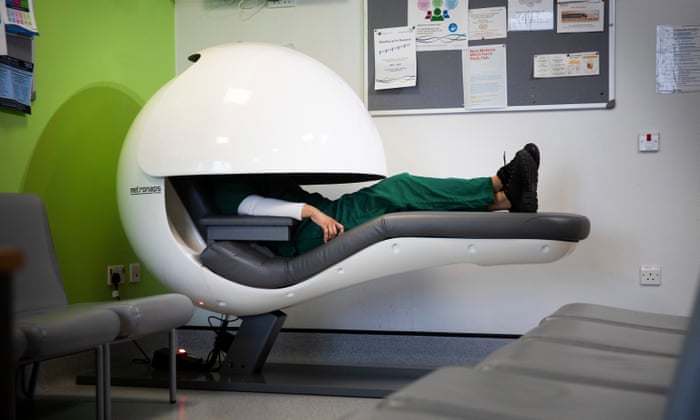NHS workers faced with long gruelling shifts are being given the chance to take a power nap as a growing number of hospitals are bringing in sleep pods for staff.
The pods have been installed permanently or are being trialled in a dozen hospitals across England.
The pods were first tested by Royal Wolverhampton NHS trust in June 2018.
Professor Steve Field, the trust’s chair told The Guardian:
“Too many staff end up exhausted because they have long, busy, sometimes stressful shifts, often with little chance to grab a break because pressure on the NHS is so intense”.
Royal Wolverhampton has put a pod in the A&E unit, the doctor’s mess and the maternity department at New Cross hospital and another in Cannock Chase hospital, which it also runs.
The trust has also put a recliner chair in the 850-bed New Cross hospital to offer staff another option for a quick nap.
Field, a former GP praised the pods saying:
“We know that doctors provide better, safer care when they are fresh and alert. We have found [the pods] to be very popular with staff and also very effective in helping them get more rest”.
The pods are available to any staff in need of a break, which means doctors, nurses, radiographers, physiotherapists and midwives can all use them. Field said:
“Staff now have places to go to get the rest they need on a 24/7 basis”.
Trust research shows that the pods are used most between midnight and 4am, but also between noon and 4pm. The research shows the average person uses the pods for between 17 and 24 minutes, although some staff have used them for up to 79 minutes.
They can be particularly handy for staff who want to get some rest before they drive home after an arduous nightshift.
Dr Mike Farquahar, a sleep consultant at the Evelina Children’s hospital in London, who has put pressure on the NHS to take sleep more seriously, has said:
“Air traffic controllers are only allowed to work for two hours and then they must take a 30 minute break, because if they were tired and made a mistake, bad things could happen”.
He added,
“but in the NHS, where the pressure is often high and sustained, the problem is that people delivering will usually choose to prioritise everything else- especially patients- over themselves and sacrifice things like breaks and sleep.”
The development has come about in part owing to the Fight Fatigue campaign, which was launched in 2018 as a joint initiative of the Association of Anaesthetists, the Royal College of Anaesthetists and the Faculty of intensive Care Medicine.
Association of Anaesthetists president and consultant anaesthetist at Aberdeen Royal Infirmary, Dr Kathleen Ferguson has said:
“We want to change attitudes across the NHS to ensure everyone understands the risks of fatigue and how to mitigate against them. We hope that by taking responsibility collectively for making changes to working practice, we can improve working conditions for all staff which will in turn benefit patient care”.
Image: The Guardian

